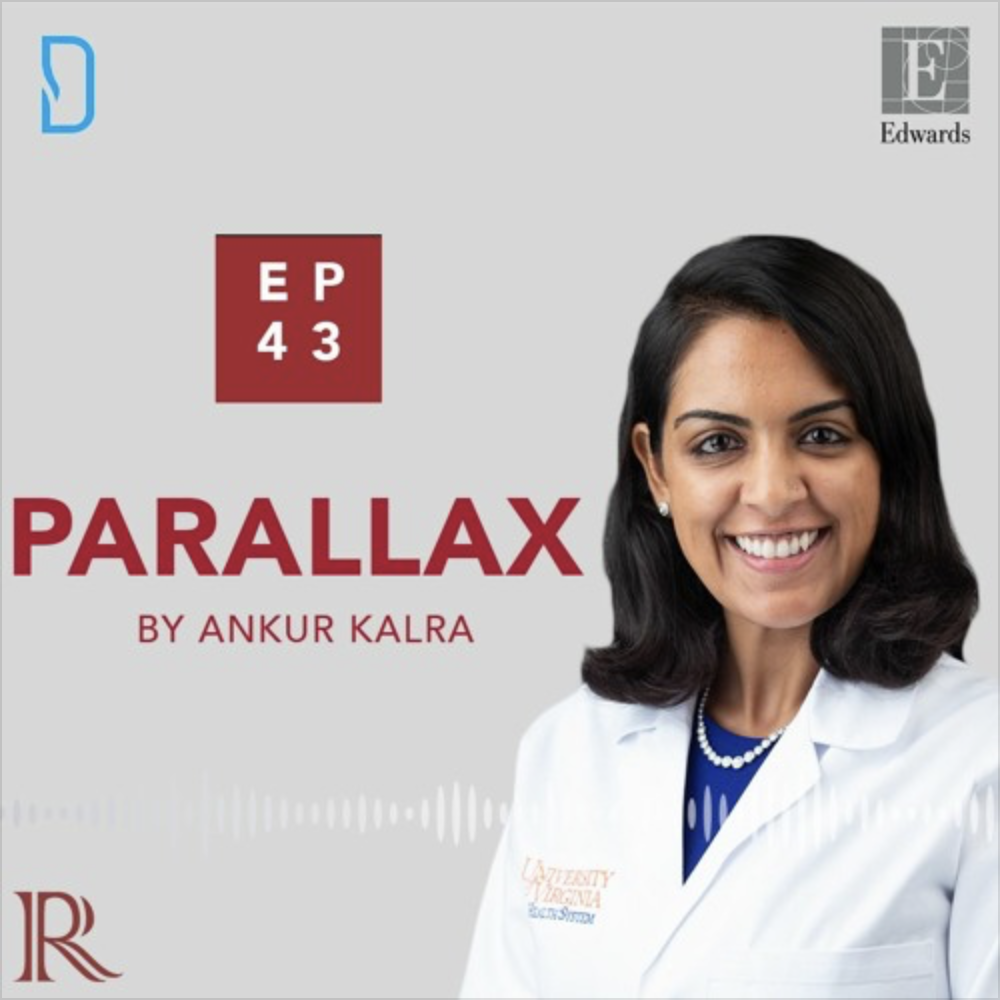
Dr Sodhi remembers the first time she stepped into a Cath lab and found her passion. Years later she was preparing to do a complex TAVR procedure with her colleagues when suddenly they all recognised the significance of four women coming together in the lab. The photo of the four of them was shared widely on social media. For Dr Sodhi it became a symbol of what great mentorship can achieve, and for many others it is a beacon of hope.
Dr Ankur Kalra’s guest is Dr Nishtha Sodhi structural and interventional cardiologist at UVA Health, one of only 2% of women in her field in the US. In this in-depth interview Nishtha talks about her progression from the beginning of her career to professional fulfillment with highlights such as performing live cases for TCT as a junior faculty. She shares practical advice on networking and recalls her positive experiences with mentors like Joe Bavaria, Samir Kapadia, Alan Zajarias and many others. Ankur asks Nishtha about the role of technology in patient care and for her predictions in the field of interventional and structural cardiology for the next few years.
What drives Dr Nishtha Sodhi? What were the formative moments of Dr Sodhi’s career? What are the new frontiers of cardiology?
Questions and comments can be sent to “podcast@radciffe-group.com” and may be answered by Ankur in the next episode. Guest @NishthaSodhi, hosted by @AnkurKalraMD. Produced by @RadcliffeCARDIO.

Brought to you by Edwards: www.edwardstavr.com

Just after 9/11, Heval, the 18-year-old Syrian Kurdish refugee found a job as a dishwasher. At this point, he was the sole provider of his family. The pressure that comes from being poor did not leave him for many years. Today, he is firm believer in giving back to underserved communities by spreading awareness within the medical community. As he says, well-meaning people of privilege are sometimes afraid to act. What we need is more people to bridge the gap and find ways to help each other.




What is the Global Cardiology University project? How does Dr Anavekar encourage trainees to re-examine their role in patient care? What is his advice to our listeners?

As Dr Kalra asks Dr Rao about the ways in which early career faculty members can get involved with the organization at a state level. Dr Rao shares his insider tips and highlights key events where individuals can further their participation.
How can you get involved with your local ACC chapter? How can you improve your leadership skills? What is Dr Rao’s advice for our listeners?

He explains how the complexity of nutrition and the compounds generated by the gut microbiome can impact our health. We learn more about three compounds produced by our gut microbiome that have a strong connection with heart disease.
Through this conversation, Dr Vuyisich invites us to reframe our approach to nutrition and prevention as a question of food education and data-driven science.





